Weight
Weight is a measure of the force of gravity acting on an object. It is different from mass, which is the amount of matter in an object. The weight of an object can change depending on the strength of the gravitational pull acting on it, while the mass remains constant.
Key Concepts to Understand:
- Force of Gravity: Weight is directly related to the force of gravity. The greater the gravitational force, the greater the weight of an object.
- Mass: While weight and mass are often used interchangeably, they are different concepts. Mass is the amount of matter in an object and does not change, while weight depends on the gravitational force acting on the object.
- Units of Measurement: Weight is commonly measured in the metric system using units such as kilograms (kg) and grams (g), or in the imperial system using pounds (lb) and ounces (oz).
Study Guide
Here are some key points to consider when studying the concept of weight:
- What is the difference between weight and mass?
- How does the force of gravity affect the weight of an object?
- What are the common units of measurement for weight?
- Can an object have the same mass but different weights on different planets? If so, why?
- How is weight measured using a spring scale or a balance scale?
Real-life Applications
Understanding the concept of weight has numerous real-life applications, such as:
- Engineering and construction, where weight calculations are crucial for designing structures and determining load capacities.
- Health and nutrition, where understanding weight is important for maintaining a healthy lifestyle.
- Astronomy, where the weight of objects on different planets is a key consideration for space missions and exploration.
◂Science Worksheets and Study Guides Fifth Grade. Flowers and seeds
Study Guide Flowers and seeds
Flowers and seeds  Activity Lesson
Activity Lesson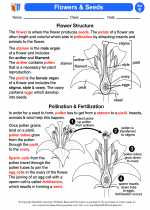 Flowers & Seeds
Flowers & Seeds  Worksheet/Answer key
Worksheet/Answer key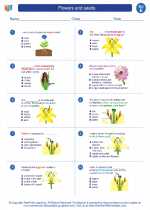 Flowers and seeds
Flowers and seeds  Worksheet/Answer key
Worksheet/Answer key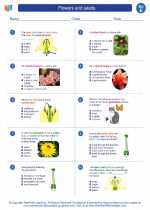 Flowers and seeds
Flowers and seeds  Worksheet/Answer key
Worksheet/Answer key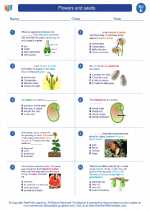 Flowers and seeds
Flowers and seeds  Worksheet/Answer key
Worksheet/Answer key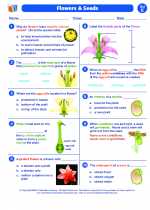 Flowers and seeds
Flowers and seeds  Vocabulary/Answer key
Vocabulary/Answer key Flowers and seeds
Flowers and seeds  Vocabulary/Answer key
Vocabulary/Answer key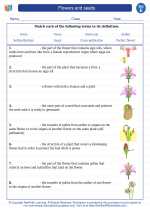 Flowers and seeds
Flowers and seeds 

 Activity Lesson
Activity Lesson
 Worksheet/Answer key
Worksheet/Answer key
 Worksheet/Answer key
Worksheet/Answer key
 Worksheet/Answer key
Worksheet/Answer key
 Worksheet/Answer key
Worksheet/Answer key
 Vocabulary/Answer key
Vocabulary/Answer key
 Vocabulary/Answer key
Vocabulary/Answer key

The resources above cover the following skills:
Life Science
All organisms have structures and systems with separate functions. Students can:
Develop and communicate an evidence-based scientific explanation of the role of different organs or structures that are important for an organism's survival - in both plants and animals